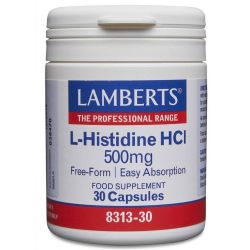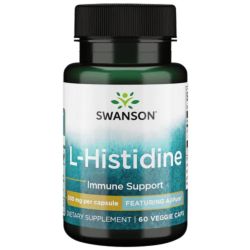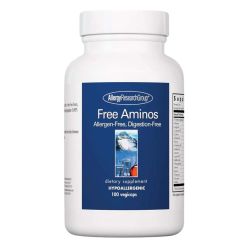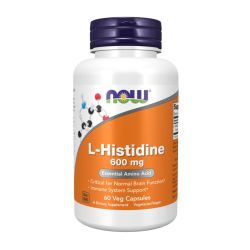Histidine Supplements
Histidine is an amino acid that the body uses to make enzymes and proteins that control kidney function, nerve signals, digestive function, immune function and tissue growth and repair. It is not considered to be an essential amino acid in adults, but is essential in babies' diets, especially those with uremia, which is a kidney disorder. Histidine is also used to create histamine in the body. Explore our range of histidine supplements here.
All you need to know about Histidine
What does histidine do?
Histidine makes certain hormones in the body that help it to function properly. This includes aiding the correct function of the kidneys, nerves, stomach, immune system, blood cells and nerve cells. It also helps the body to break down and metabolise certain elements such as zinc, iron, copper and manganese. Low histidine levels can be linked to kidney failure, pneumonia in infants and some mental health conditions such as schizophrenia. Histidine is also good for treating people with low levels of histamine in their body.
Is histidine good for brain health?
Because histidine increases levels of histamine in the blood, it is understood that it boosts histamine levels in the brain, too. Histamine is important for a healthy nervous system and the transmission of brain signals. Those with low histamine levels may suffer from seizures and convulsions, which a histidine supplement can help to treat. Speak to your GP about taking histidine for brain health if you are concerned.
What foods contain histidine?
You should ideally get all the histidine you need from your diet. Foods that are high in histidine include dairy products like milk and cheese, fish, poultry and red meat. Other foods that are high in protein, such as soybean, are also high in histidine.
How much histidine should I be taking?
You should consult your GP before taking supplements, to ensure that you are taking the right dosage. The average histidine dose is between 4 and 5 grams every day. Taking higher doses than this could potentially have toxic effects, and cause complications with growth and development (in infants), as well as liver problems and high cholesterol levels.





